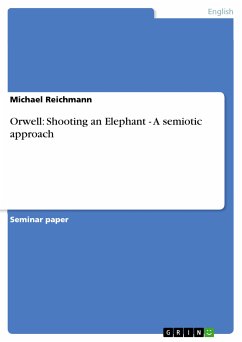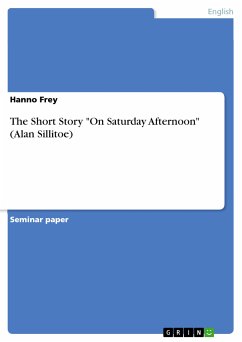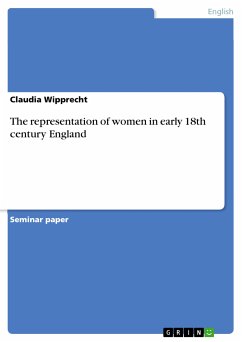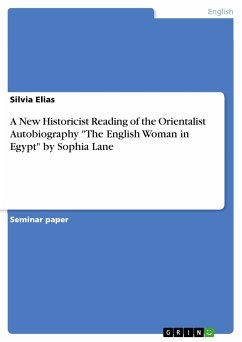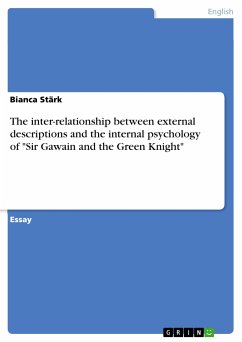Seminar paper from the year 2003 in the subject English Language and Literature Studies - Literature, grade: 1,0, University of Hamburg (IAA), course: Seminar II: “George Orwell, the English and the Empire”, language: English, abstract: In this paper we will not mainly focus on an interpretation of the plot of “Shooting an Elephant”, but we will rather explore how the elements of the text and hypertexts (such as the narrator and the elephant as well as imperialism) are related and set in opposition to each other within the text. We will basically concentrate on the differences between 4 main carriers of meaning in “Shooting an Elephant” and how these differences differ themselves depending on their constellation to each other. For that we will explore their contradictory as well as their contrary relations to each other. Moreover, we will explore how the central themes dealt with in “Shooting an Elephant” derive from these constellations and how the text transports the ideas of imperialism rooted in the language and especially in the narrative structure which reinforces the idea of ‘us’ and ‘them’. In order to substantiate our findings, we will employ a method called the semiotic square developed by Algirdas Greimas. It will help us to develop the inherent and underlying organisation of this essay through its acting elements and ordering principles. The semiotic square is a tool originating from the text and discourse analysis and as such it hails from structuralism and poststructuralism. Authors such as Frederic Jameson6 have frequently used it to determine how meaning is not only reproduced, but also transmitted through and by a text. Especially transformations from one form of society to another have been realised in narrative texts such as novels or later films. The semiotic square helps to detect these structural embeddings in the text. Consequently, the structure of the current analysis will be as follows: First, we will give a brief but sufficient introduction to the semiotic square. Thereafter, we will apply it to “Shooting an Elephant” in order to create a meaningful construct to work with it. Subsequently, we will evaluate the findings and interpret the structure of the second generation categories7 found by the square. Finally, in the conclusion we will summarize the points made throughout this essay. Due to the limitedness that arises out of the circumstances that come along with papers like this, we are limited as well in many aspects and can often only touch the surface of certain issues. However, we will look closely at the main points that led us to write this paper.
Bitte wählen Sie Ihr Anliegen aus.
Rechnungen
Retourenschein anfordern
Bestellstatus
Storno

